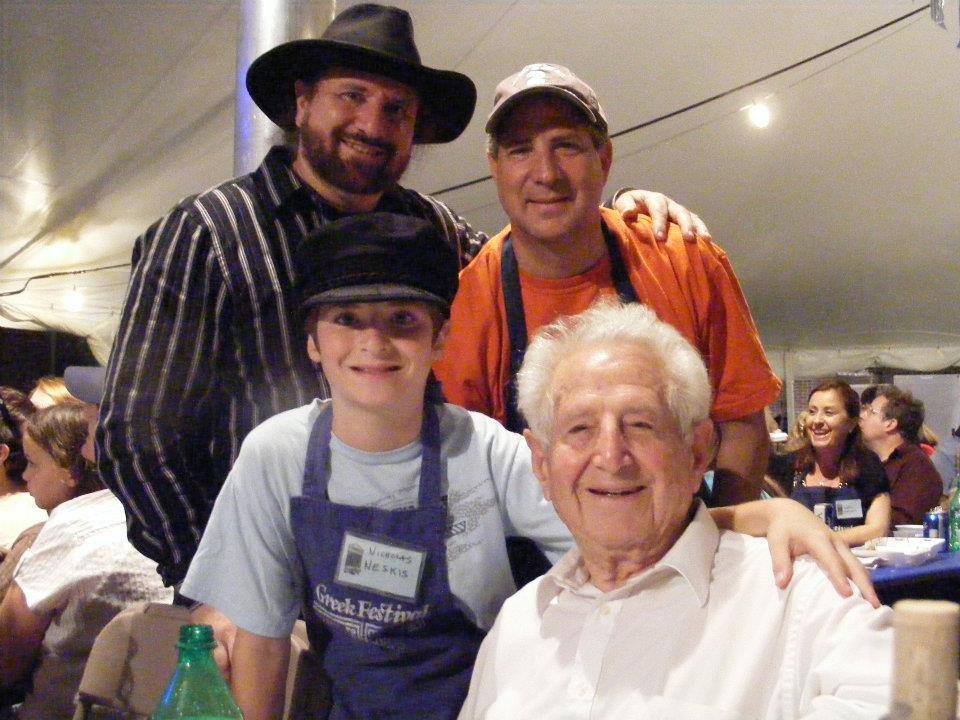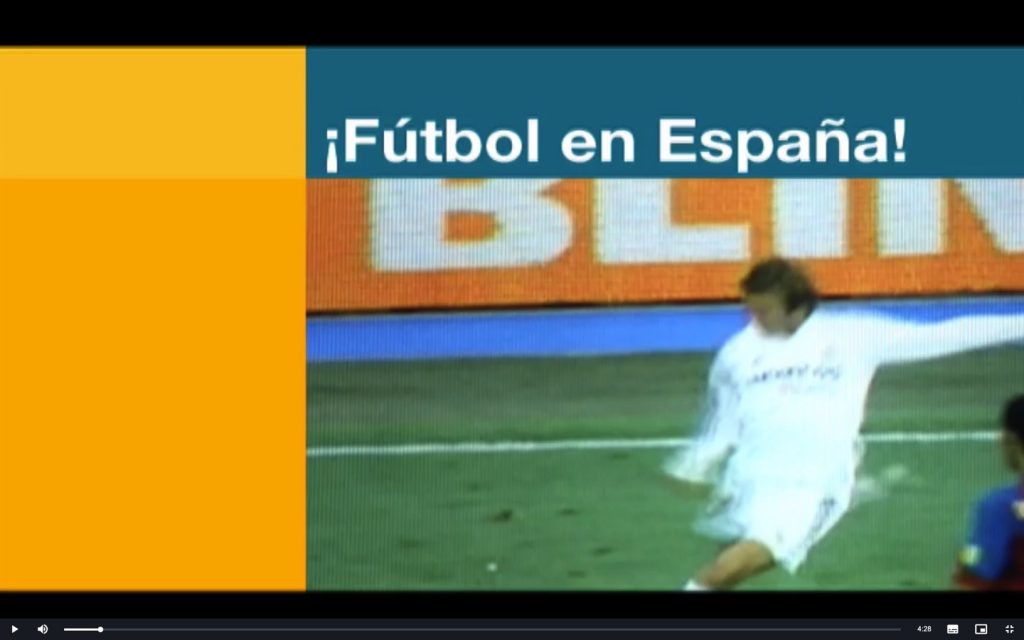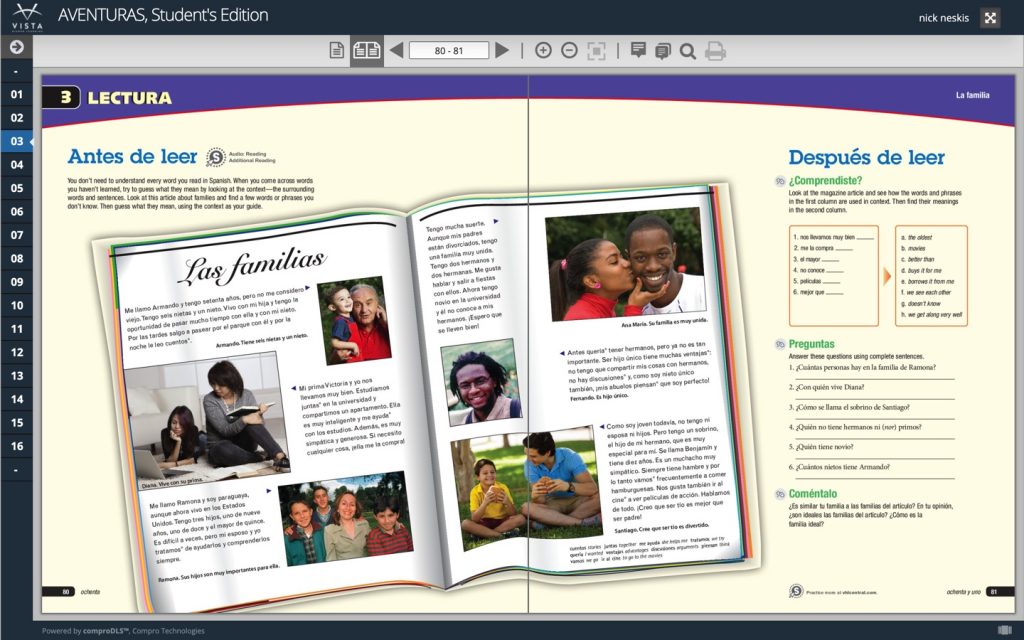Interpretive, Interpersonal, and Presentational Modes of Communication
Exploring Culture
I gained an understanding of cultural perspectives at a young age. I was raised going to a Greek Orthodox church and practiced Greek traditions, but I attended a Catholic school for my entire life before high school. I was exposed to practices in both environments and developed an appreciation for both. This exposure to different practices helped me understand, respect, and appreciate different cultures. I have been fortunate enough to travel a few places overseas with my family and I was forced to adapt to entirely different ways of life in places like Italy and Greece. Flash Cultura in Spanish 101 also really helped give insight into cultural differences in Spanish-speaking countries and helped me understand their way of life.
Flash Cultura in Spanish 101 was really one of my favorite parts of the course. I was really interesting seeing and learning about so many places as well as different lifestyles that people lived. It even gave insight into what traditional families were like in different countries as well as popular sports rivalries. Traveling to Greece and Italy really helped me understand different cultures as well as taught me how to adapt to unknown situations. Being in a completely foreign country where you don’t understand the native language can be quite a challenge. Maneuvering foreign places helped me appreciate different cultures more and forced me to become fully involved in traditional practices.
Engaging in Communities
My family is heavily envolved in the Greek church we attend and every year, the church hosts a large festival called Greek Fest. Since an extremely young age, I have volunteered with my entire family to help the church in putting on this event which generates thousands of dollars, almost all of which goes directly to the church. For a lot of people, this event is a chance to experience traditional Greek food, dancing, and art. It makes me very proud to know that I can help people from other cultures experience the traditions I was raised around.

This picture shows my uncle, father, and grandfather at the Greek Festival. I am wearing my volunteer clothes as well as a very traditional Greek cap.
Interpersonal Communication
We were instructed to complete discussion board assignments that allowed us to share personal things about ourselves in Spanish. This is a great way to draw our interest in an assignment and it made it enjoyable because it was about ourselves. In this discussion board assignment, we were asked to describe our class schedule.
Spanish-Discussion-Board-about-Classes-In this assignment, we were asked to name the classes we are taking as well as the day and time at which they meet. This assignment was fun for me because it helped me learn useful terms that allow me to describe the date and time something is occurring. In class, we were spontaneously asked at times to split up into groups and review topics such as this. I recall a time when we were asked to hold a dialog about our classes and repeat what we wrote on our discussion board. Writing a response and then being able to speak it in Spanish is quite the challenge. Being able to remember what you want to say and speak it fluently definitely presented a challenge. Over time, practicing sentences in break-out rooms with my classmates really enhanced my ability to speak in a conversational setting.
Presentational Speaking
In this class, we were asked to complete a series of interviews both between our classmates and our teacher. We were prompted to discuss many topics such as our families and what they were like. These assignments required us to use descriptive vocabulary and explain details such as hair color and height.
This was one of the most stressful assignments because it was on the sport and required us to recall vocabulary and conjugate words in an instant. This really challenged me to become fluent in conversations and also improvise on the spot if needed. In the future, I will remember the methods I used to complete these interviews and expand upon them until I become fluent.
Presentational Writing
In this class, we were asked to write a few compositions that were meant to assess our knowledge of the vocabulary and see how effectively we include it in our writing.
Composition-2-Final-SpanishIn this composition, I talk about and describe my family members. This is the second composition I completed and the growth between the two is amazing. In this composition, I become more comfortable with different phrases and was able to describe things in a more in-depth manner. It became easier to form sentences and use the right conjugations in different situations. In the future, I can strive to make my compositions longer and perhaps further expand on the things I talk about.
Interpretive Listening
During this semester we were asked to watch videos about different concepts and traditions in Spanish. Known as Flash Cultura, these videos helped us remember important facts. After we watched the videos we were asked to complete an assesment about what we watched. These assignments were known as Competencia Cultural and they required us to write a response based on the video along with questions about the video.

This is an example of a Flash Cultura video. This video in particular talks about fútbol in Barcelona. Watching these videos and responding to questions after helped me memorize and retain information. I had trouble answering the questions at first and found myself rewinding the videos a few times until I fully understood the content. I overcame this by reviewing the questions first and looking for the answers while I watched the video. I also learned to accept that repeating the video and watching it a few times help me grasp the material. I can honestly say I have grown by completing these assignments and am happy that I had the chance to expand my knowledge about so many different places.
Interpretive Reading
In one chapter this semester, we learned about various different types of families in order to gain an understanding of traditional and nontraditional family styles. One reading in particular described 6 different groups of people, all with different family and living circumstances.It was our job to read the descriptions (in Spanish) and figure out what they mean.

This was challenging at first because the descriptions are entirely in Spanish and it was our job to interpret exactly what it was saying about specific people. I overcame this difficulty by identifying the words i recognized and using context clues to find out what was being said. This assignment was actually fun because it allowed me to read about other peoples families and how they lived.